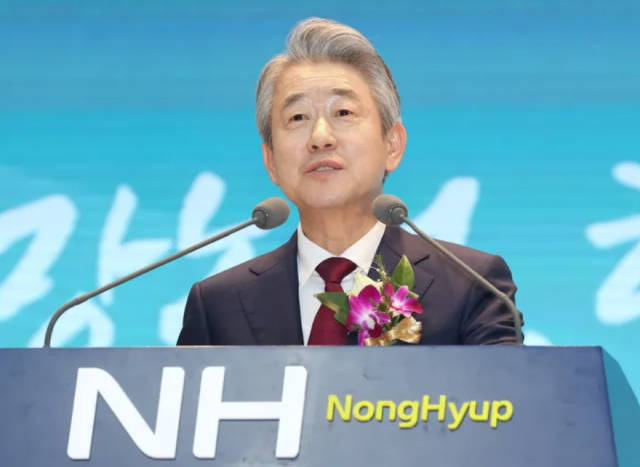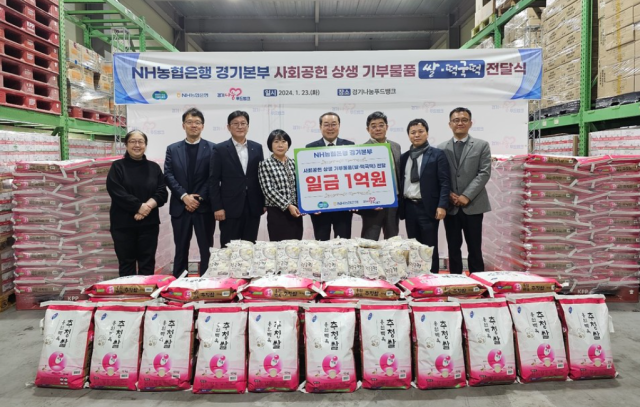
Editor's Note: This article is the 18th installment in our series on Asia's top 100 companies, exploring the strategies, challenges, and innovations driving the region's most influential corporations.
SEOUL, May 14 (AJP) - South Korea’s largest agricultural cooperative and financial group, NongHyup (NH), is navigating a volatile landscape in 2025, shaped by climate disruptions, demographic shifts, and rising global tensions.
According to a recent report from the NH Future Strategy Research Institute, the organization is confronting a web of challenges: erratic weather patterns impacting food supply chains, unstable agricultural prices, rural depopulation, and renewed geopolitical friction amid the second Trump administration in the United States.
In response, NongHyup is doubling down on food security, managing domestic rice supplies, and working to boost the global profile of Korean food products.
Legacy of rural support
Founded in 1958, NongHyup was created to empower farmers following Korea’s liberation from Japanese colonial rule. At the time, rural communities were burdened by weak infrastructure and limited access to capital, leaving agricultural production fragmented and inefficient.
The cooperative has since evolved into a national institution rooted in its 2.05 million-member base, with 1,111 agricultural and livestock cooperatives operating across the country. Its central body, the NongHyup Central Association, oversees a broad portfolio that includes eight headquarters divisions, 34 departments, and specialized units.

NongHyup operates under a dual structure: NH Economic Holdings, which manages distribution, food, and chemical subsidiaries; and NH Financial Holdings, which oversees banking, insurance, securities, and asset management arms.
This hybrid model allows NongHyup to deliver both agricultural and financial services to farmers and rural residents, creating a rare synergy between the farm and the financial system.
NH Bank and its sister firms not only provide credit and investment tools but also offer social and logistical support across the agricultural supply chain.
Under the leadership of Kang Ho-dong, Chairman of the Central Association; Lee Seok-jun, Chairman of NH Financial Holdings; and Kang Tae-young, President of NH Bank, NongHyup has emphasized Environmental, Social, and Governance (ESG) principles as a cornerstone of its long-term strategy.
“The core of future preparation is AI and ESG,” Lee said in a recent speech, highlighting the organization’s ambition to fuse cooperative ideals with cutting-edge technology and sustainability practices.
As part of this pivot, NH NongHyup Bank is accelerating its international expansion.
The bank plans to upgrade its London office into a full-service branch and establish a strategic foothold in Singapore. Additional branches are in the works in Ho Chi Minh City, Vietnam. Since launching its global division in 2017, NH has opened offices in New York, Sydney, Hong Kong, Beijing, Noida (India), and across Southeast Asia.
The expansion is beginning to pay off. In the past year alone, NH NongHyup Bank’s overseas assets have grown by 39 percent. The bank aims to generate 150 billion won in international profits by 2030, with overseas operations already surpassing 100 billion won in net income for the first time.
 NH Financial Holdings Chairman Lee Seok-jun/ Courtesy of NongHyup
NH Financial Holdings Chairman Lee Seok-jun/ Courtesy of NongHyupAt the 2025 Global Strategy Council, NH executives made clear that the group intends to move beyond its traditional “fast follower” posture. Instead, they aim to become a “first mover,” aggressively pursuing new business and investment opportunities.
“We cannot close the gap with global leaders by simply following in their footsteps,” said Jo Jung-rae, Vice President of NH Financial Group. “Risk management and speed in seizing new opportunities must define our approach.”
That strategic agility builds on a history of bold corporate moves, including the 1998 acquisition of Namhae Chemical for 300 billion won, the 2014 purchase of seed firm Nongwoo Bio, and the acquisition of Woori Investment & Securities for over 1 trillion won. In 2003, NH partnered with France’s Amundi to launch NH Amundi Asset Management, expanding its global reach in asset management.
The organization faces scrutiny over governance and ethical lapses. NH Bank has come under fire for improper lending practices and recurring financial missteps.
Critics have raised concerns over politically influenced executive appointments, particularly at subsidiaries like NH Life Insurance. There have also been reports of workplace harassment and wrongful dismissals at some regional branches.
Farmer advocacy groups have also voiced frustration over persistent agricultural price declines and what they see as insufficient reforms in distribution channels.
As it eyes the future, NongHyup is seeking to balance tradition with transformation. Its long-term strategy centers on blending cooperative values — mutual aid, community development, social responsibility — with the demands of a modern, competitive economy.
That includes deepening ESG adoption, investing in digital innovation, expanding its global presence, and supporting farmers in navigating the new realities of climate change, market volatility, and global supply chain shifts.
In a country where agriculture still plays a vital — if shrinking — role, NongHyup’s ability to evolve may well determine the fate of Korea’s rural communities in the decades ahead.

Copyright ⓒ Aju Press All rights reserved.

